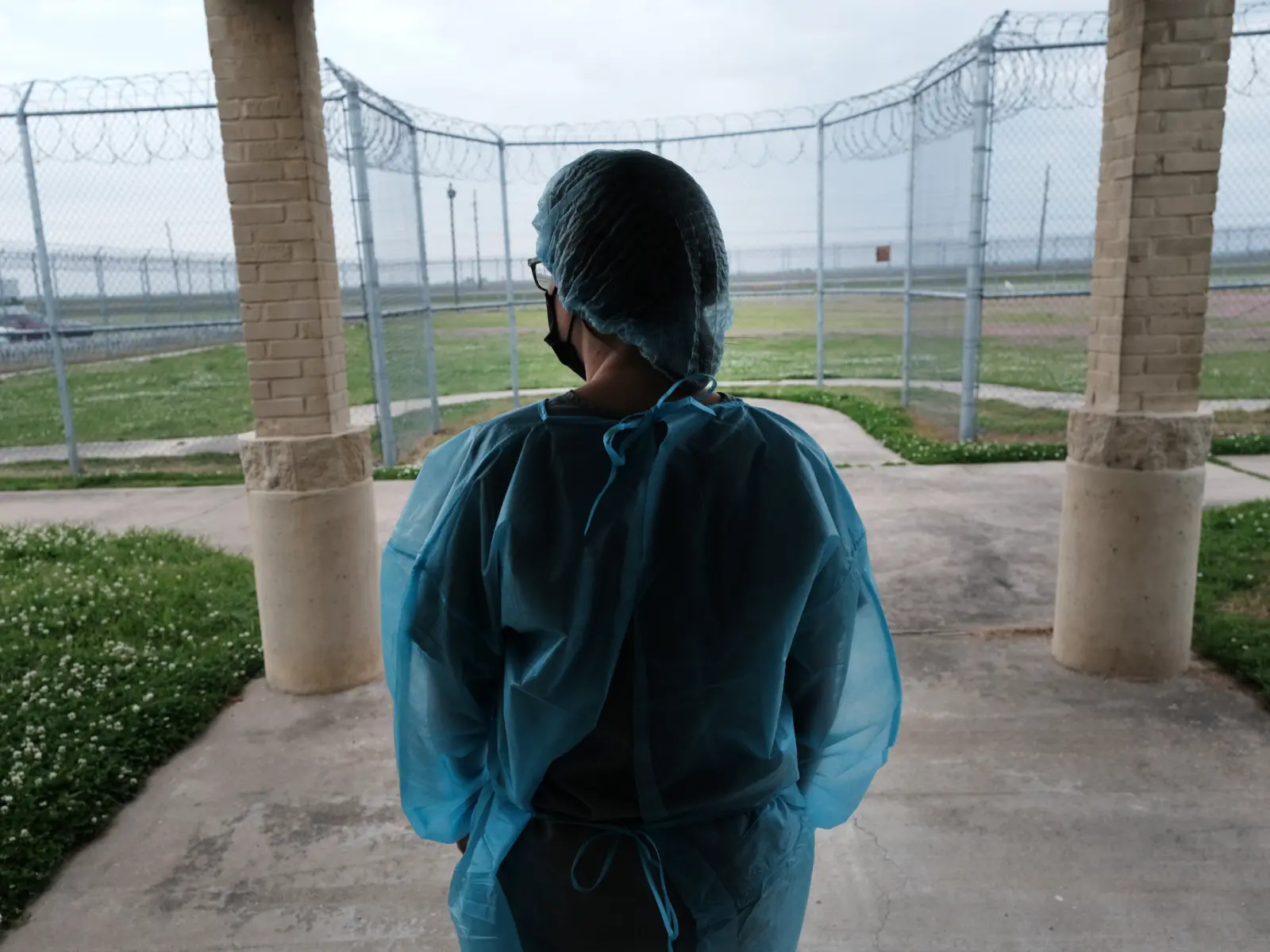Recently, the Social Science Research Council (SSRC), with support from Arnold Ventures (AV), launched the Criminal Justice Innovation (CJI) Fellowship program, which supports early-career researchers who are exploring what works to make communities safer and the criminal justice system fairer and more effective.
In part three of a new series profiling the CJI fellows, AV spoke with Britte van Tiem, who recently received her Ph.D. in criminology from the University of Pennsylvania, about how prison conditions and policies affect people who are incarcerated before and after release.
Britte van Tiem: The Impacts of Prison-Based Programming
Prior to starting her doctoral program, van Tiem managed a peer support program in prisons across the U.K. and Ireland. She also served as an independent monitor of two immigration removal centers. As part of the CJI fellowship program, van Tiem will research the role of social bonds in prison and the impact of prison-based programming on post-release outcomes.
Van Tiem says that prisons, and how we use them as a society, has always fascinated her. But where accountability to the public is concerned, they are something of a black box. “People who have an incarcerated family member never make it past the visiting room — they never see where their loved ones live, eat, and sleep for potentially many years,” she says. “That makes it all the more important that we study prisons just like we study hospitals or schools — we need to ask what prisons are for and if they live up to expectations. That’s part of what drives my work.”
In 2023, van Tiem published a study looking at whether immigration enforcement partnerships in local jails lead to police profiling Hispanic people. Using traffic stop data, she asked whether these partnerships led to increased police stops and arrests of Hispanic drivers in North Carolina, and found no evidence to suggest that jail-based enforcement led to racial profiling. However, the partnerships do appear to have led Hispanic drivers to use the roads less frequently.
People who have an incarcerated family member never make it past the visiting room — they never see where their loved ones live, eat, and sleep for potentially many years.Britte van Tiem Ph.D. in criminology at the University of Pennsylvania and fellow for the Criminal Justice Innovation (CJI)
Van Tiem has also been part of a team working on an AV-supported randomized controlled trial of a prison reform initiative led by the Pennsylvania Department of Corrections. Specifically, she is studying people’s in-prison experiences after they are randomly assigned to spend part of their sentences in a Scandinavian-inspired unit that provides more day-to-day freedom, higher levels of staffing, and increased supportive services.
Separately, van Tiem is evaluating prison vocational training programs, which are understudied despite existing in 75% of U.S. prisons, to learn how they impact labor market outcomes. “My findings are still preliminary, but what we see is that graduates of these programs are much more likely to find work in the sectors targeted by their training than their peers,” she says. “That’s promising because it suggests that the provision of hard skills and positive credentials can successfully steer their labor market trajectories.”
As part of the new SSRC fellowship, van Tiem plans to continue her study of the Scandinavian-style prison unit in Pennsylvania and consider its longer-term effects. She will also build on her work on vocational training in prisons to test a wider range of programs in different settings and learn whether changes in employment drive reductions in recidivism. Additionally, van Tiem will embark on a new project exploring the role of social ties to family and friends while people are in prison. In particular, as more states are making prison phone calls free, she will study the effect of phone contact on desistance from crime after release.
Van Tiem hopes that the evidence she finds can inform policymakers across the United States in their decision-making. “Prisons routinely implement programs that have never been studied,” van Tiem says. “We already know that these programs are operationally feasible. With evidence on whether they work, we can help policymakers choose between scaling up or adjusting course.”




















